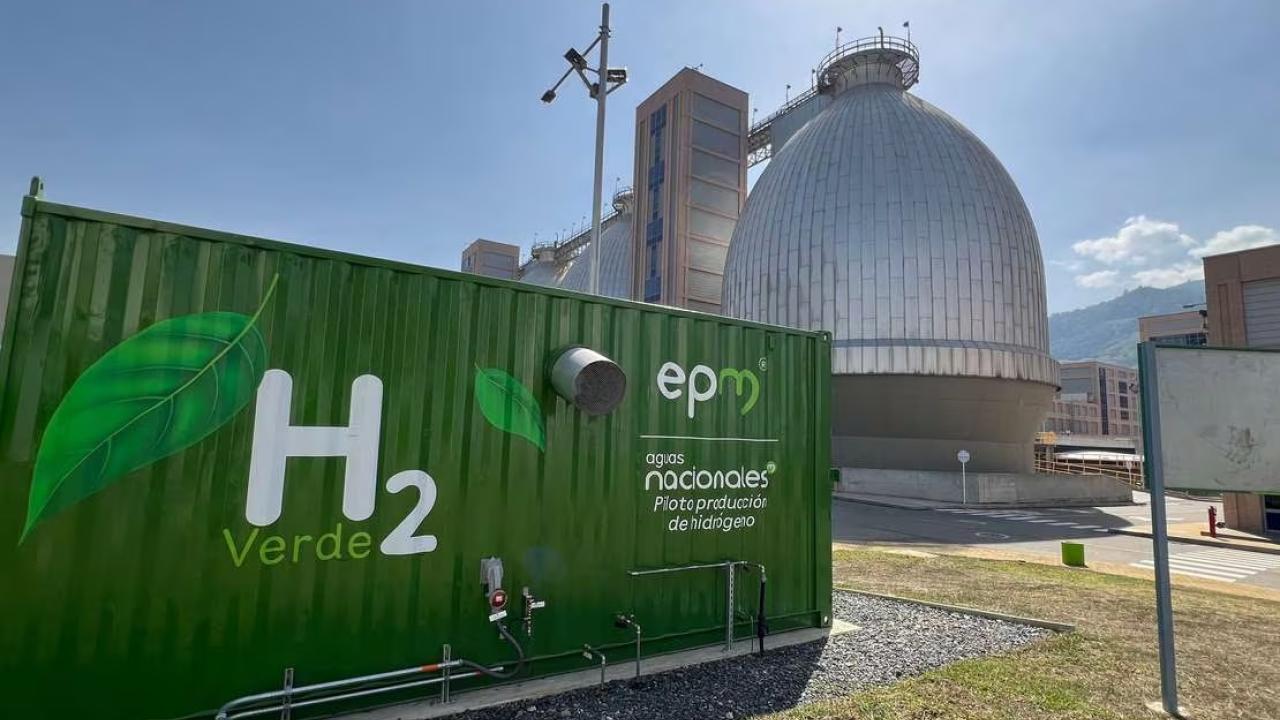
The alliance seeks the production of clean energy in Colombia, with Germany being a nation with a high demand potential.
The route that the Colombian government has outlined, in energy matters, points towards a decarbonization of the economy, reducing the prominence of fossil fuels and increasing that of renewable energies, such as wind, solar and green hydrogen.
A plan widely questioned by some sectors, who perceive that although the transition is necessary, doing it in such an accelerated manner could have serious implications for the national economy, if it is taken into account that oil continues to be, by far, the main product of export.
Green hydrogen has been, due to the high production potential in Colombia, one of the main attractions for the country in the midst of this commitment to the energy transition.
The latter has been one of the main attractions for the coffee-growing country, due to the potential it has to produce it. In search of materializing this production, for a year now the government of Gustavo Petro has approached the government of Germany to advance cooperation, research and development programs.
In the last few hours, the Colombian Ministry of Mines and Energy reported on the creation of a high-level Green Hydrogen steering committee between both nations.
This will be made up of the Ministers of Commerce, Industry and Tourism, Germán Umaña Mendoza, and of Mines and Energy, Andrés Camacho, and on the German side by the Parliamentary Secretary of State of the Federal Ministry of Economy and Climate Protection, Franziska Brantner.
Part of the commitments addressed by this committee includes technology transfer, the insertion of Colombian companies in value chains and the construction of alliances that strengthen energy cooperation.
“It was agreed to work on issues of regulation and standardization of standards to facilitate the arrival and execution of investment projects related to the energy transition. Likewise, we will work with government entities to eliminate or break down possible obstacles, including those related to permits and dialogue with communities,” the ministry stated.
This alliance seeks to take advantage of the leadership that Germany has in the generation of public policy, technological advances, research and involvement of the private sector in the development of hydrogen, to which is added the interest in cooperating with countries with production potential, such as Colombia.
The Minister of Commerce, Industry and Tourism, Germán Umaña Mendoza, highlighted that “in the Government of President Gustavo Petro we are convinced that this is a fundamental moment to strengthen and deepen bilateral ties with Germany in the energy sector.
We are advancing in a transition towards the decarbonization of our economy and we have a Reindustrialization policy that will allow us to accelerate the development of renewable energies and the production of green hydrogen. The country also has an optimal combination of abundant resources, excellent potential for solar and wind farms and access to water, as well as a great capacity to export to countries with high energy demand, such as Germany.”
For her part, the Parliamentary State Secretary of the Federal Ministry of Economy and Climate Protection, Franziska Brantner, assured that “with today's meeting, Colombia and Germany intensify their cooperation in renewable energy and green hydrogen. Last summer, Germany and Colombia had already agreed on their Climate Alliance and a Just Energy Transition in order to cooperate more closely on climate protection and sustainable transformation.”
The senior German official also added that “Colombia offers enormous potential for renewable energy and green hydrogen. Germany depends in the long term on imports of green hydrogen for the sustainable transformation of its economy and its energy supply.
For this, Colombia is one of our chosen partners. With the High Level Steering Committee, we are preparing specific projects for the production of hydrogen and its derivatives. Today we have analyzed initial project proposals together with companies from both countries. I am confident that some of these projects will be continued and implemented.”
As reported by the portfolio, to date 10 green hydrogen pilots have been carried out in the country, with a focus on applications for residential use, transportation and industry.










